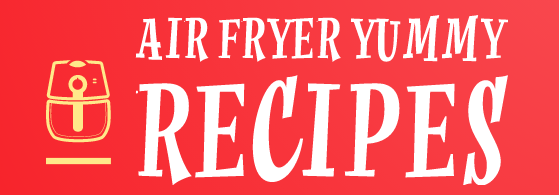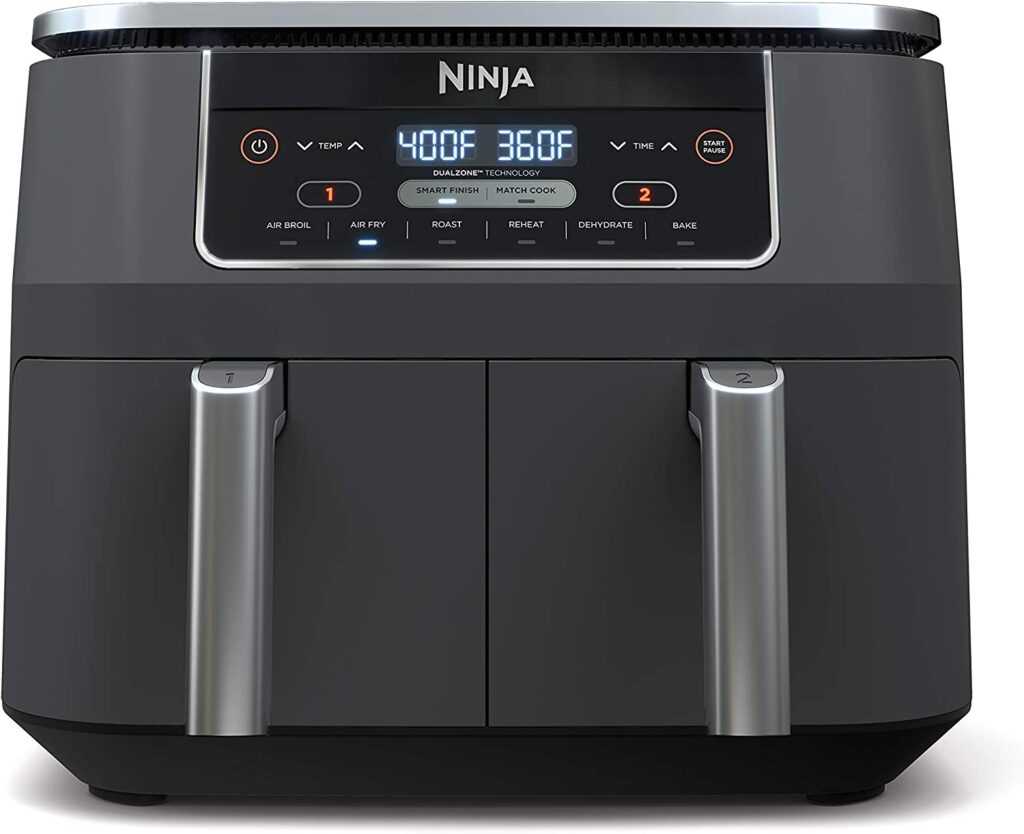Beef Tongue Air Fryer Recipe: A Delicious Twist On A Classic Dish
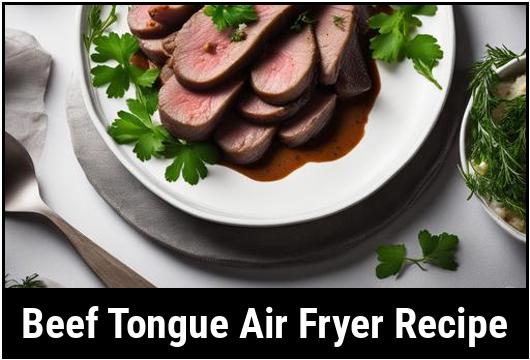
Beef tongue may not be the first cut of meat that comes to mind when you think about delicious meals, but trust us when we say it’s an incredible delicacy. With its unique flavor and tender texture, beef tongue is a favorite among food enthusiasts who appreciate the wonders of slow-cooked meats. In this comprehensive guide, we’ll explore how to prepare a mouthwatering beef tongue using the air fryer, covering everything from food science and culinary details to selection, cleaning, preparation, tips, variations, doneness checks, and the recipe itself.
Understanding the Food Science Behind Beef Tongue
Before diving into the culinary aspects, let’s briefly explore the food science behind beef tongue’s unique qualities. Beef tongue is composed of muscle tissues with abundant connective tissue, making it a collagen-rich protein. Collagen gives the tongue its characteristic tenderness when cooked correctly, and this quality is enhanced in slow-cooked or air-fried preparations.
When cooked at a low temperature for an extended period, collagen breaks down into gelatin, providing a mouth-melting experience. In an air fryer, the intense circulating heat mimics the slow-cooking process, resulting in tender, juicy beef tongue with a perfectly caramelized exterior.
Selecting and Cleaning the Perfect Beef Tongue
When selecting a beef tongue for your air fryer recipe, look for one that is fresh, well-marbled, and plump. Opt for tongues that exhibit a bright pink color and are free from blemishes. The size of the tongue will depend on your preference and the number of servings you desire.
Once you’ve chosen your beef tongue, it’s time to clean it thoroughly. Start by rinsing it under cool water, paying extra attention to remove any dirt or debris attached to the surface. Use a sharp knife to peel off the tough outer skin, revealing the smooth and succulent meat beneath. After removing the skin, rinse the tongue once again to ensure it’s completely clean and ready for seasoning.
Preparing the Beef Tongue for Air Frying
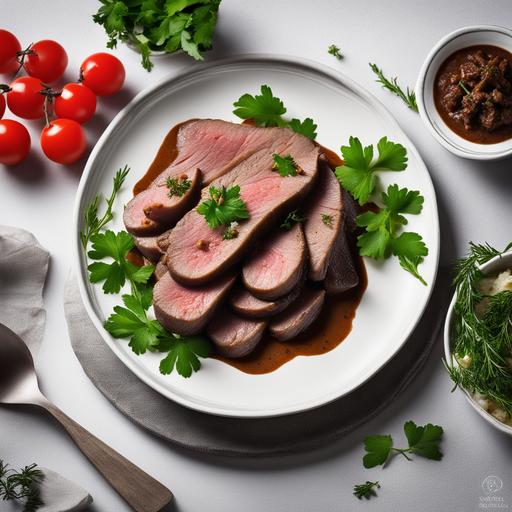
To infuse maximum flavor into your beef tongue, it’s crucial to add seasonings that complement its richness. Traditional seasonings such as salt, pepper, garlic powder, and onion powder work beautifully, but feel free to experiment with herbs and spices that suit your taste preferences.
After seasoning the tongue, allow it to sit at room temperature for about 30 minutes. This step not only allows the flavors to penetrate the meat but also ensures more even cooking. Meanwhile, preheat your air fryer to the desired temperature, typically around 375°F (190°C), allowing it to reach the perfect cooking environment.
Tips and Techniques for Ensuring Beef Tongue Success
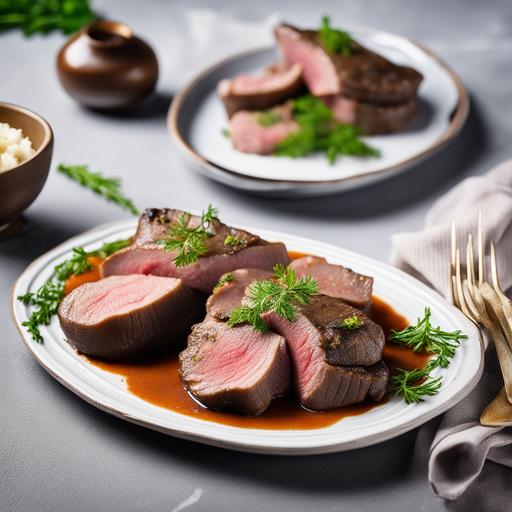
When air frying beef tongue, the following tips and techniques will help you achieve the best results:
-
Use a wire rack: Placing the seasoned beef tongue on a wire rack allows hot air to circulate evenly around the entire surface, ensuring uniform cooking and optimal browning.
-
Baste for enhanced flavor: Basting the beef tongue with melted butter or your favorite marinade throughout the cooking process will enhance its flavor and keep it moist.
-
Consider marinating overnight: While not essential, marinating the beef tongue overnight in a flavorful marinade can result in an even more flavorful outcome.
-
Test for doneness: Using a meat thermometer is essential to determine if your beef tongue is cooked to perfection. Aim for an internal temperature of 165°F (74°C) to ensure tenderness.
Variations and Flavor Combinations
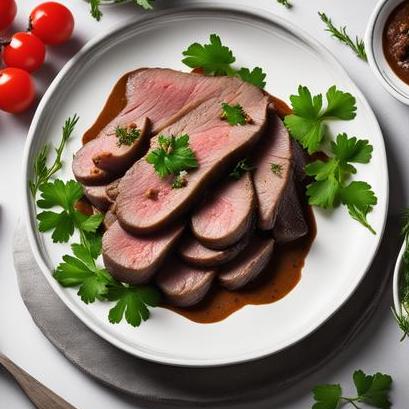
While a classic beef tongue recipe is undeniably delicious, exploring different flavor combinations can take your culinary adventures to new heights. Here are a few variations and flavor pairings to consider:
-
Asian-inspired: Marinate the beef tongue in soy sauce, ginger, garlic, and a touch of hoisin sauce for a succulent Asian-inspired twist.
-
Spicy kick: Add a pinch of cayenne pepper or chili powder to your seasoning for a spicy kick that pairs wonderfully with the richness of beef tongue.
-
Citrus-infused: Use a combination of citrus zest and juices, such as lemon, orange, and lime, to add a refreshing and tangy element to your beef tongue recipe.
-
Herb-infused: Experiment with fresh herbs like rosemary, thyme, and parsley to infuse your beef tongue with aromatic flavors.
Ensuring the Perfect Doneness with Beef Tongue
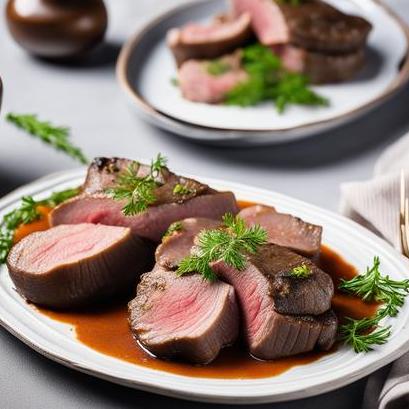
To ensure the perfect doneness when air frying beef tongue, a meat thermometer is your most reliable tool. Insert the thermometer into the thickest part of the tongue, away from any bones, and aim for an internal temperature of 165°F (74°C). This temperature ensures both tenderness and optimal food safety.
If you prefer a well-done tongue with a slightly firmer texture, you can allow the temperature to reach around 175°F (80°C). However, be cautious not to overcook the tongue, as it may become tough and lose its melt-in-your-mouth tenderness.
Beef Tongue Recipe: Air Fried to Perfection
Now that we’ve covered the science, culinary details, cleaning, preparation, tips, variations, and doneness checks, let’s dive into a sensational beef tongue air fryer recipe that will impress your taste buds:
Ingredients:
- 1 beef tongue (approximately 3 pounds)
- 2 teaspoons salt
- 1 teaspoon black pepper
- 2 teaspoons garlic powder
- 2 teaspoons onion powder
- 2 tablespoons melted butter
Instructions:
- Rinse the beef tongue under cool water and remove any dirt or debris. Peel off the tough outer skin.
- Season the beef tongue with salt, black pepper, garlic powder, and onion powder. Allow it to sit at room temperature for 30 minutes.
- Preheat your air fryer to 375°F (190°C).
- Place the seasoned beef tongue on a wire rack and insert it into the preheated air fryer.
- Cook the tongue for 45 minutes, then baste it with melted butter.
- Continue cooking for another 30-45 minutes until the internal temperature reaches 165°F (74°C).
- Remove the beef tongue from the air fryer and allow it to rest for 10 minutes.
- Slice the beef tongue thinly against the grain and serve it with your favorite accompaniments.
Time to Savor the Deliciousness!
Congratulations on embarking on this gastronomic journey of preparing beef tongue using the air fryer! You have now mastered the food science, culinary details, selection, cleaning, preparation, tips, variations, and doneness checks necessary to create a tender and flavorful dish. Whether you choose to stick with the classic recipe or explore unique flavor combinations, the result will be a succulent delight that will leave you and your guests craving more. So go ahead, fire up that air fryer, and savor the mouthwatering goodness of beef tongue like never before!
Sources
FAQS On Beef Tongue Air Fryer Recipe
Can I Use My Air Fryer To Cook Beef Tongue?
Yes, you can definitely use an air fryer for cooking beef tongue.
How Long Does It Take To Cook Beef Tongue In An Air Fryer?
The cooking time can vary depending on the size and thickness of the beef tongue, but it usually takes around 30-40 minutes at 400°F (200°C).
Do I Need To Marinate The Beef Tongue Before Air Frying?
While marinating is not necessary, it can enhance the flavor of the beef tongue. You can marinate it for a few hours or overnight in a mixture of your preferred seasonings and spices.
Should I Preheat The Air Fryer Before Cooking Beef Tongue?
Yes, it is recommended to preheat the air fryer for a few minutes before adding the beef tongue. Preheating ensures that the meat cooks more evenly and efficiently.
How Do I Prepare Beef Tongue For Air Frying?
Start by thoroughly cleaning the beef tongue and removing any excess fat. You can then score the surface of the tongue with shallow cuts to allow the flavors to penetrate better. Pat it dry with a paper towel before cooking.
How Do I Know When The Beef Tongue Is Cooked To Perfection?
The best way to determine if the beef tongue is cooked is by using a meat thermometer. The internal temperature should reach 145°F (63°C) for medium-rare to medium doneness. Alternatively, you can check if the meat is tender and easily pulls apart with a fork.
Can I Add Any Seasonings Or Glaze To The Beef Tongue While Air Frying?
Yes, you can add your favorite seasonings and glazes before or during cooking. You can brush the beef tongue with a mixture of soy sauce, honey, garlic, and other spices to add extra flavor. Just make sure to monitor the cooking time to prevent any excessive browning or burning.
